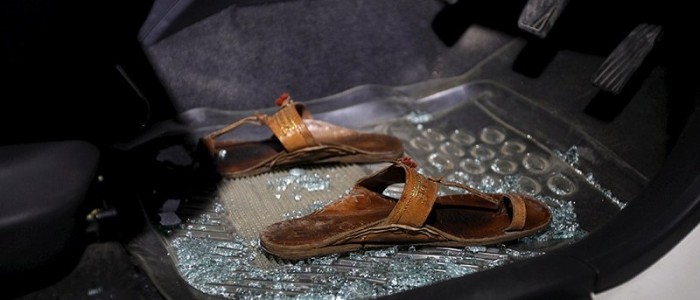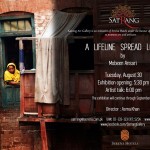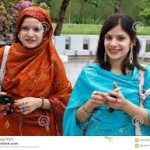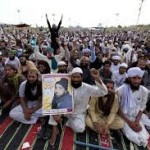War narratives/ Curfew
A curfew imposed can not be only formally: the cities close for safety reasons (Kabul, for example), you come back at home at 23 and can succeed only after 6 in the morning. No, the city can be closed a bit ‘at a time, in a semi-formal way, taking measures that force those who live in non-circulation living.
A few days throughout Pakistan (in a city with 22 million inhabitants as Karachi, as well as in a small district of Balochistan) shops must close at 8 pm, restaurants and other cafè officially at 11. Reason: the shortage of electric energy, one of the worst evils of the country, “because” austerity “forces” the Federal Government to enact this directive. Aircon and fans begin to pump and the energy is not enough.
I couldn’t believe it, and even many of my Pakistani friends: you’ll see, they were saying, they talk about it every year but then it does not do anything. But last night a friend invited me to dinner earlier than expected because the restaurant should close at 11. Not availed the protests by shopkeepers: especially the small street vendors, those who live the night, because the heat of the day becomes more and more unbearable, and only when it is late you can go out for a walk and get some fresh air. It is not even too true that the Government saves energy, because really the other night at midnight the light disappeared from F7, the most popular and busy area of Islamabad, the most frequented by foreigners, against any of the security awareness, if you stay in the road with a flat tire what do you do? And the risk of assaults and robberies?
For those who remain at home the bill becomes saltier indeed: more they remain at home the more you pay the energy consumption within the four walls, and they are really expensive bills, plus the cost of additional batteries and for the wealthiest of generators and fuel that make them work.
There is no doubt that the Pakistani capital is the safest in the country: you are stopped dozens of times a day at checkpoints, the trunk of your car checked, which in itself limits and frustrates your freedom, in the name of what is “good” for you. A part of the diplomatic enclave dedicated lives, where there are embassies and now the US government and the Canadian one decided to transfer all of their citizens in the enclave by the end of the year, building palaces and new offices. So the social gap between Pakistani and foreign widens even more (no, there is a positive thing: the rental prices of homes will drop considerably).
But that life already is? That life will be? A life with curfew, a silk scarf that you squeeze in a somewhat ‘softer’ around your neck. It ‘s true: no one asks you to come and live here and those who do it will pay you handsomely, but once you got there this is your life, and the life of all citizens.
It is work strategically based on fear as a weapon of prevention: during the S.Valentine day it was asked to flower hawkers selling “discreetly” flowers for lovers, because some of them were attacked by fundamentalists, rather than protect them in their one-day-work worth a few dollars.
You live in fear when a university in Lahore decided – at the suggestion of the secret services – not to build a workshop with Sabeen Mahmud, a human rights activist who was scheduled to speak against torture and abductions in Balochistan. And she did that yesterday in Karachi, her city, only to be killed in her car on his way home. The glass of her windshield and sandals on the bottom of the car seemed at the same time tears. Who will continue to go to the next workshop without fear of becoming a target? So instead of fight, you avoid and prevent and repress between, in families as in the State, the step we know is short.
Yes it is true, sometimes here and chokes in an evening breeze like this night in the capital too, that I never think, I dream ride on my scooter, after an ice cream, with the wind in my face.
This post is dedicated to S., who assumed her because she is a young woman, and has the courage to ride a bike to go to work, something unthinkable even in Islamabad. And this is an uphill battle: go against the soporific and frustrating social apathy of the majority.








